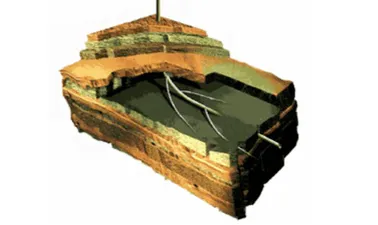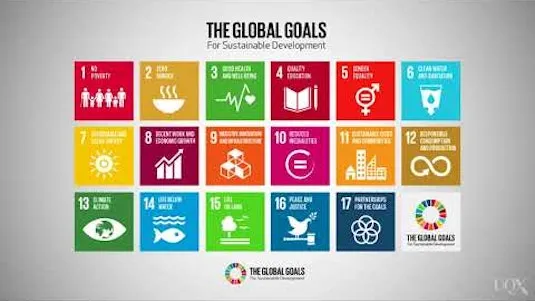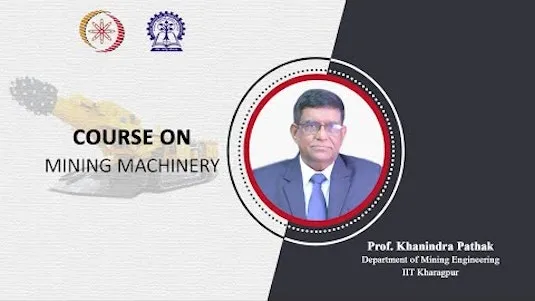
Reservoir Geomechanics 
This course combines the disciplines of rock mechanics, structural geology, earthquake seismology and petroleum engineering to provide an understanding of geomechanical issues related to the extraction of oil and gas from reservoirs. It covers topics such as reservoir stability, seismic hazard assessment and wellbore integrity. ▼
ADVERTISEMENT
Course Feature
![]() Cost:
Cost:
Free
![]() Provider:
Provider:
Edx
![]() Certificate:
Certificate:
Paid Certification
![]() Language:
Language:
English
![]() Start Date:
Start Date:
24th Sep, 2020
Course Overview
❗The content presented here is sourced directly from Edx platform. For comprehensive course details, including enrollment information, simply click on the 'Go to class' link on our website.
Updated in [March 06th, 2023]
1. Understanding of Basic Principles: Learners can obtain a comprehensive understanding of the basic principles of reservoir geomechanics, such as rock mechanics, structural geology, earthquake seismology and petroleum engineering. This knowledge can be applied to a wide range of geomechanical problems that arise during the exploitation of oil and gas reservoirs.
2. Prediction of Pore Pressure: Learners can gain the ability to predict pore pressure, which is essential for the exploitation of oil and gas reservoirs. This includes the estimation of hydrocarbon column heights and fault seal potential, as well as the determination of optimally stable well trajectories, casing set points and mud weights.
3. Changes in Reservoir Performance: Learners can learn how to identify and analyze changes in reservoir performance during depletion, as well as production-induced faulting and subsidence. This knowledge can be used to optimize the exploitation of oil and gas reservoirs.
4. Interdisciplinary Knowledge: Learners can gain an interdisciplinary knowledge of reservoir geomechanics, which can be applied to a variety of fields, such as petroleum and geothermal industries, and research scientists interested in stress measurements and their application to problems of faulting and fluid flow in the crust.
5. Practical Application: Learners can gain practical skills in the application of reservoir geomechanics to real-world problems. This includes the ability to identify and analyze changes in reservoir performance during depletion, as well as production-induced faulting and subsidence.
[Applications]
It is suggested that those who have completed this course apply their knowledge to the practical issues of predicting pore pressure, estimating hydrocarbon column heights and fault seal potential, determining optimally stable well trajectories, casing set points and mud weights, and understanding changes in reservoir performance during depletion and production-induced faulting and subsidence. Additionally, they should be able to apply their knowledge to research related to stress measurements and their application to problems of faulting and fluid flow in the crust.
[Career Paths]
1. Reservoir Geomechanics Engineer: Reservoir geomechanics engineers are responsible for designing and implementing geomechanical models to predict the behavior of oil and gas reservoirs. They use their knowledge of rock mechanics, structural geology, earthquake seismology and petroleum engineering to develop models that can accurately predict pore pressure, hydrocarbon column heights, fault seal potential, and other factors that affect reservoir performance. As the demand for energy increases, the need for reservoir geomechanics engineers is expected to grow.
2. Reservoir Geomechanics Analyst: Reservoir geomechanics analysts use their knowledge of geomechanics to analyze data from oil and gas reservoirs. They use their expertise to interpret seismic data, analyze well logs, and develop models to predict reservoir performance. As the demand for energy increases, the need for reservoir geomechanics analysts is expected to grow.
3. Reservoir Geomechanics Consultant: Reservoir geomechanics consultants provide advice and guidance to oil and gas companies on geomechanical issues. They use their knowledge of rock mechanics, structural geology, earthquake seismology and petroleum engineering to advise companies on the best practices for developing and exploiting oil and gas reservoirs. As the demand for energy increases, the need for reservoir geomechanics consultants is expected to grow.
4. Reservoir Geomechanics Researcher: Reservoir geomechanics researchers use their knowledge of geomechanics to develop new methods and technologies for exploring and exploiting oil and gas reservoirs. They use their expertise to develop new models and techniques for predicting reservoir performance, and to develop new technologies for monitoring and controlling reservoir behavior. As the demand for energy increases, the need for reservoir geomechanics researchers is expected to grow.
[Education Paths]
1. Petroleum Engineering: Petroleum engineering is a field of engineering that focuses on the exploration, production, and development of oil and gas resources. It involves the use of advanced technologies to maximize the efficiency of oil and gas production, while minimizing environmental impacts. Petroleum engineers are also responsible for the design and operation of oil and gas production systems, as well as the development of new technologies to improve the safety and efficiency of oil and gas production. Developing trends in this field include the use of artificial intelligence and machine learning to optimize production, as well as the development of new technologies to reduce environmental impacts.
2. Structural Geology: Structural geology is the study of the structure of the Earth's crust and the processes that shape it. It involves the analysis of rock formations, faults, and other features to understand the history of the Earth's crust. Developing trends in this field include the use of 3D seismic imaging to better understand the structure of the Earth's crust, as well as the use of geophysical techniques to better understand the processes that shape the Earth's crust.
3. Earthquake Seismology: Earthquake seismology is the study of earthquakes and their effects on the Earth's crust. It involves the analysis of seismic waves to understand the source of an earthquake, as well as the effects of an earthquake on the Earth's crust. Developing trends in this field include the use of advanced seismic imaging techniques to better understand the source of an earthquake, as well as the use of geophysical techniques to better understand the effects of an earthquake on the Earth's crust.
4. Rock Mechanics: Rock mechanics is the study of the mechanical properties of rocks and their response to stress. It involves the analysis of rock samples to understand the strength and deformation of rocks under different conditions. Developing trends in this field include the use of advanced imaging techniques to better understand the mechanical properties of rocks, as well as the use of geophysical techniques to better understand the response of rocks to stress.
Course Provider

Provider Edx's Stats at AZClass
Reservoir Geomechanics combines the disciplines of rock mechanics, structural geology, earthquake seismology and petroleum engineering to understand the geomechanical problems associated with extracting oil and gas from reservoirs. Learners gain a comprehensive understanding of the fundamentals of reservoir geomechanics, such as rock mechanics, structural geology, earthquake seismology, and petroleum engineering. This knowledge can be applied to various geomechanical problems that arise during the production of oil and gas reservoirs. Learners gain the ability to predict pore pressure, which is critical to the development of hydrocarbon reservoirs.
Discussion and Reviews
0.0 (Based on 0 reviews)
Explore Similar Online Courses

Introduction to Virtual Reality

Public Relations Foundations: Media Training

Python for Informatics: Exploring Information

Social Network Analysis

Introduction to Systematic Review and Meta-Analysis

The Analytics Edge

DCO042 - Python For Informatics

Causal Diagrams: Draw Your Assumptions Before Your Conclusions

Whole genome sequencing of bacterial genomes - tools and applications

Mining Engineering

The Future of Mining?


Start your review of Reservoir Geomechanics